This morning we had a lecture with David about climate change, agriculture, and food tourism, where he introduced us to “Terroir” – the complete natural environment in which a particular wine is produced, including factors such as the soil, topography, and climate. Next, we talked about climactic and agricultural stability. He mentioned that the agricultural stability in the Western states and Western Canada is poor, yet it’s one of the fastest populating areas. This increase in the population will continue to stress food and water systems. He told us that the Romans grew food in the alps and various locations across the Mediterranean and then moved it down to their urban centre because urbanization stresses food systems. This of course only works if you have the space.
At the end, Kellee told us to do a reading to prepare for the next food & philosophy lecture. After the lecture we went for lunch – we had Farfalle pasta with pesto & stuffed tomatoes at the Enoteca. We had more than enough time to prepare for the next class and do the reading, but I went to buy groceries to prepare for the student hosted dinner and then when I got back I couldn’t get the article to load on my laptop. Kaitlin slept through the whole break so at least I wasn’t the only one who didn’t read it. I asked Kaleena to give me a quick run down before class.
In class, we got into two groups to discuss the reading, and we were given a list of questions to discuss. The reading was about a ban on non-local/non-traditional foods in the old town of Lucca. At first, I thought that’s a great way to preserve traditions, but then we talked about the ethics of this law, and how at home we have so many different food options from different cultures around the world, and most of us appreciate that, so the people in Lucca probably would too. We talked about localism vs cosmopolitanism and localism as public policy. This was a very eye-opening discussion.
Localism: Cherishing a set of local traditions, beliefs & aspirations. Authenticity & strong cultural shaping.
Cosmopolitanism: Interconnectedness, global citizenship.
After the discussion, we headed to the Farmhouse and got to cooking right away. The culinary students are making most of the food tonight, and I am contributing by making a Roasted red pepper, carrot, and tomato sauce for the dairy free and mushroom hating folks (Kyler’s pasta sauce is with cream and mushrooms). After a few hours of cooking everyone joined us in the Farmhouse and we had a watermelon salad, meatballs, gnocchi – made from scratch by Adam, and ice cream with peaches. And wine of course! A lot of wine. Everything was delicious, and my sauce turned out great but it was a little spicy. David asked if I’m sure my family isn’t from Calabria because my sauce has come kick. They aren’t, I just found some dried chillies in our kitchen and added one. Couldn’t taste it. Added another and the rest is history.
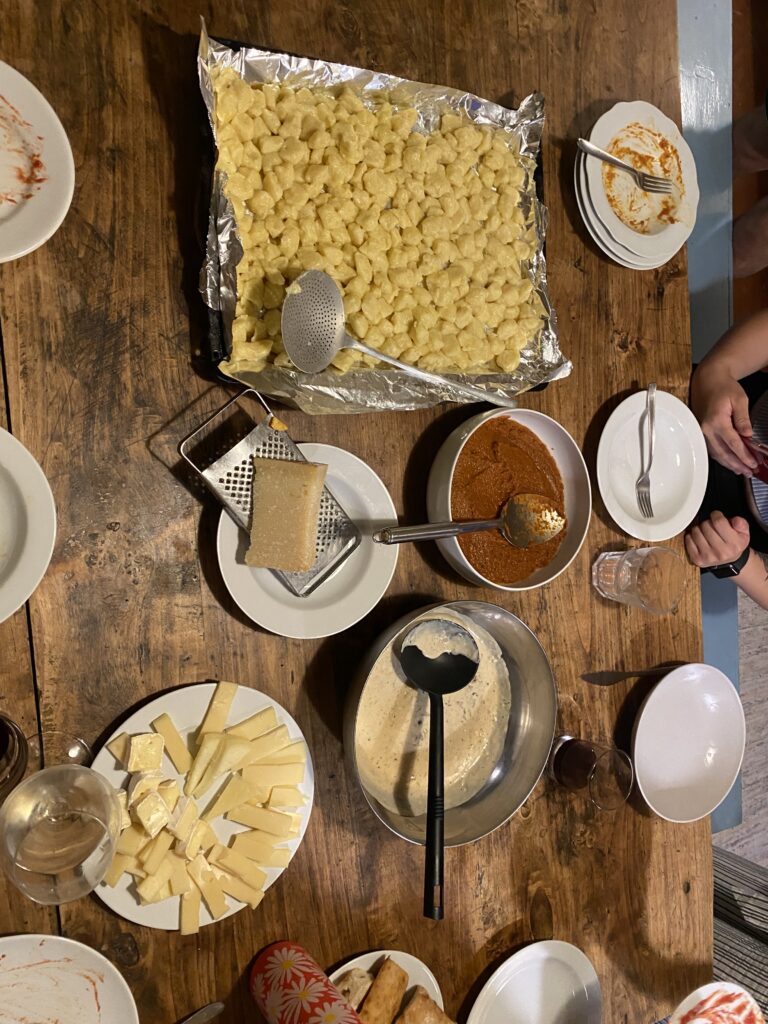
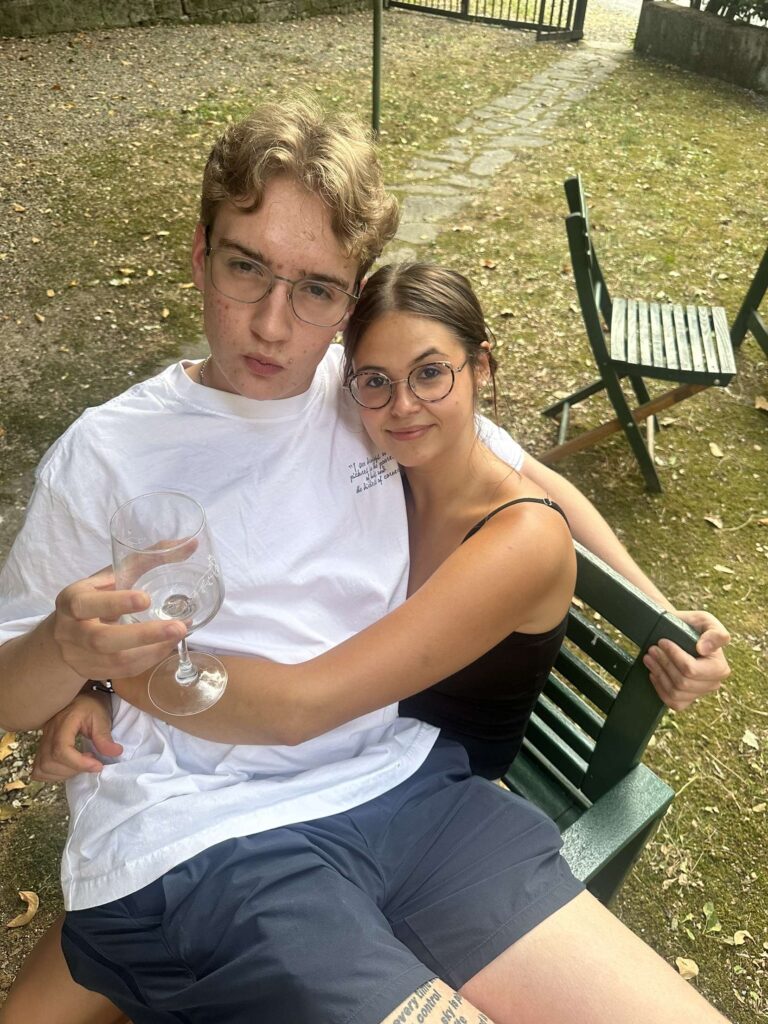
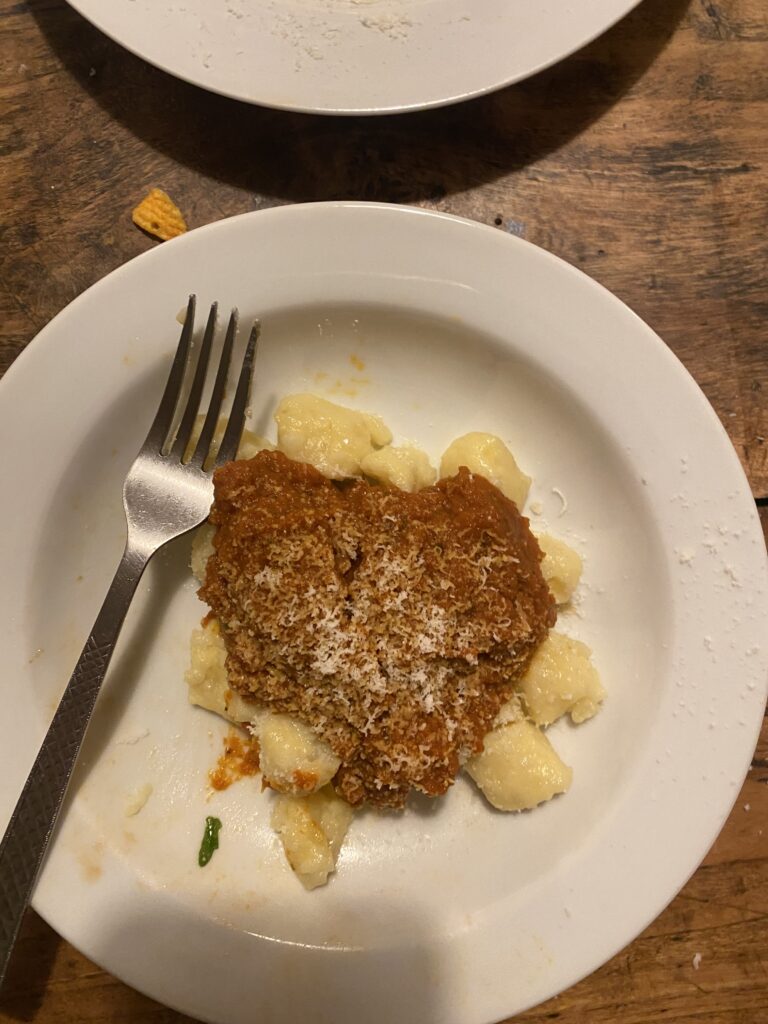
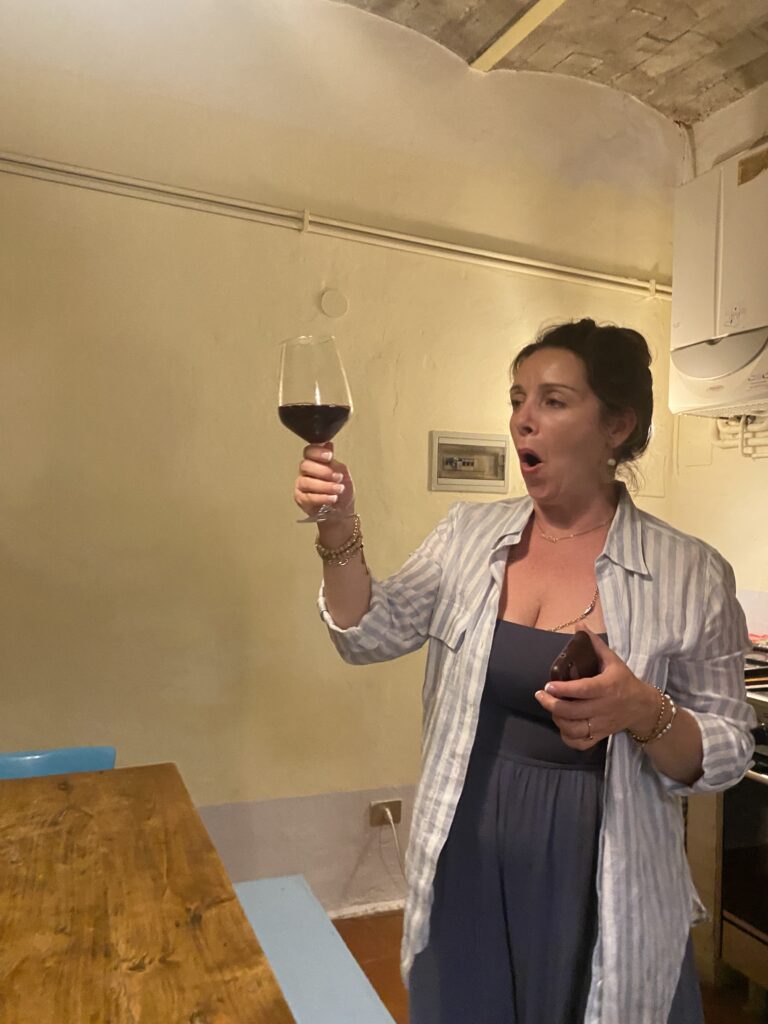
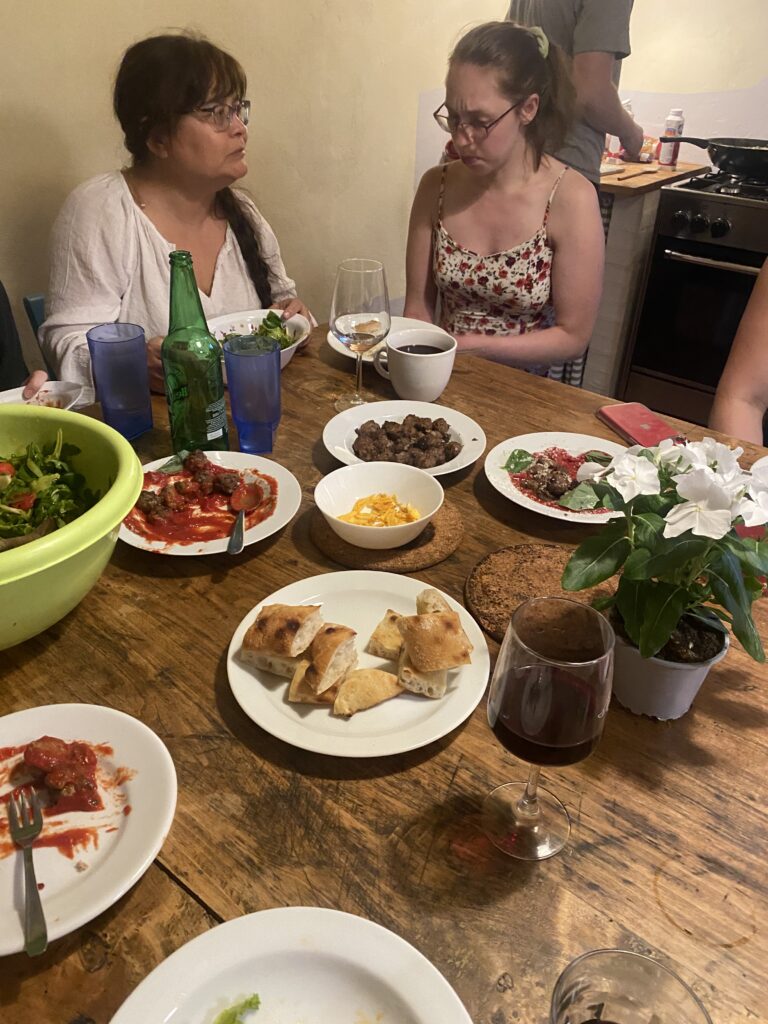
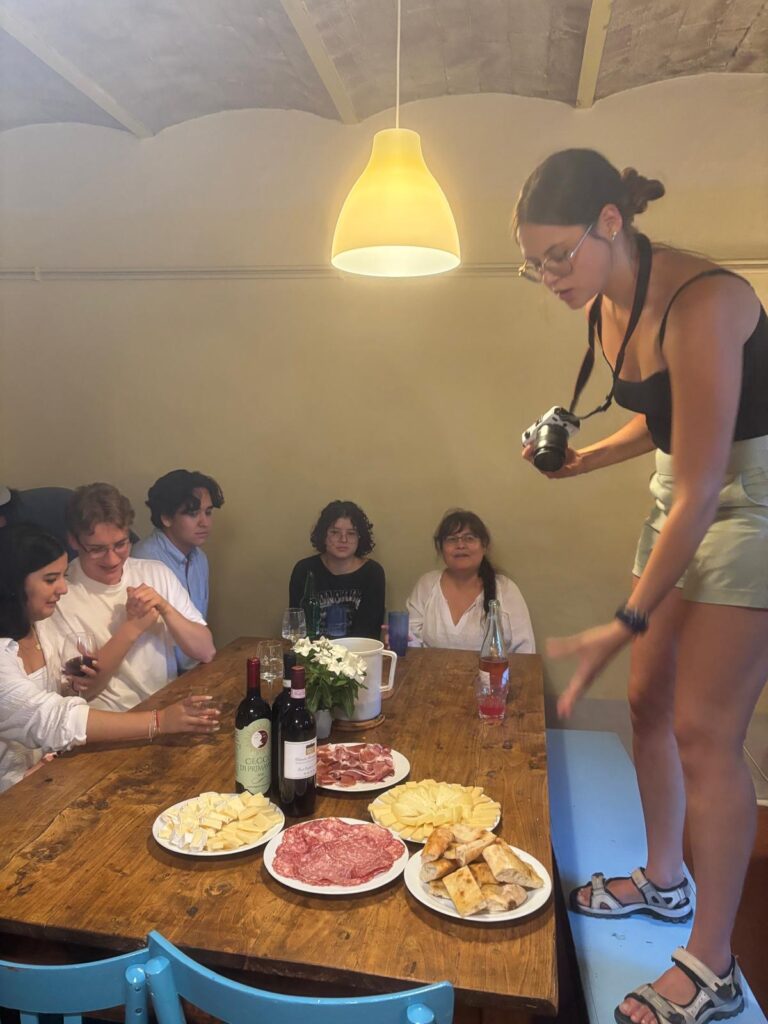
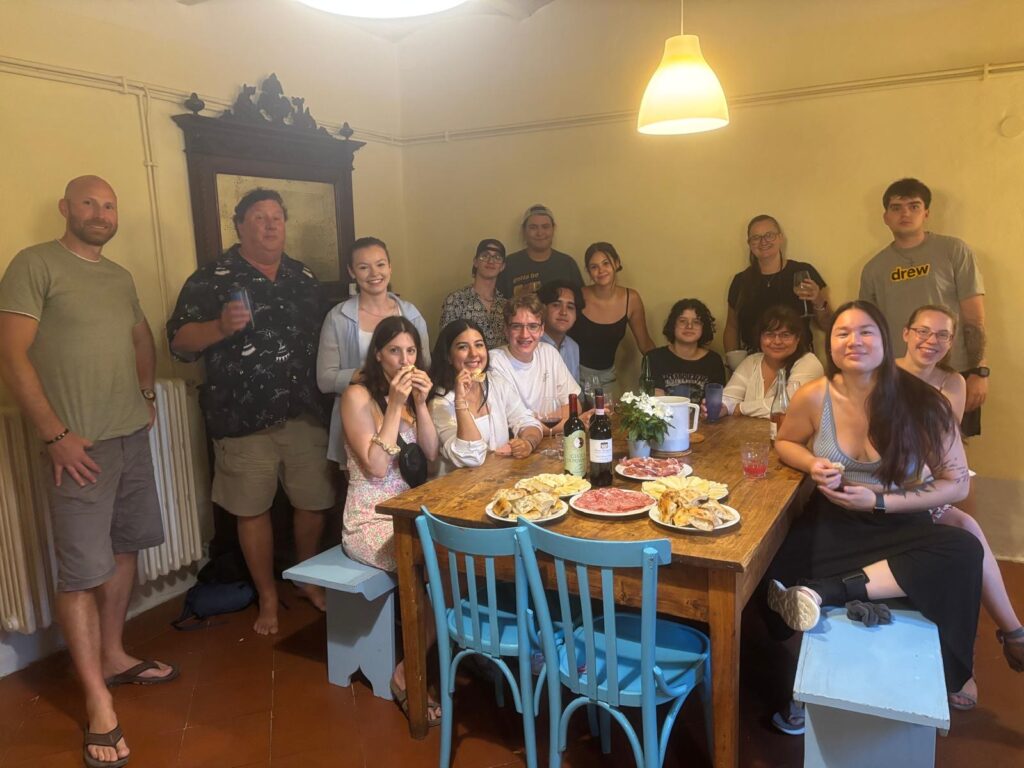
I chatted with Oneka a lot tonight, and she said she doesn’t really like wine so she hasn’t been drinking it. I gave her some to try and I think she liked it cause she had a lot. After we had finished eating, I put on some ABBA and we had a kitchen dance party! Apparently David said there hasn’t been a kitchen dance party during any of the field courses before. This was shocking news. I hope that it will become a tradition.
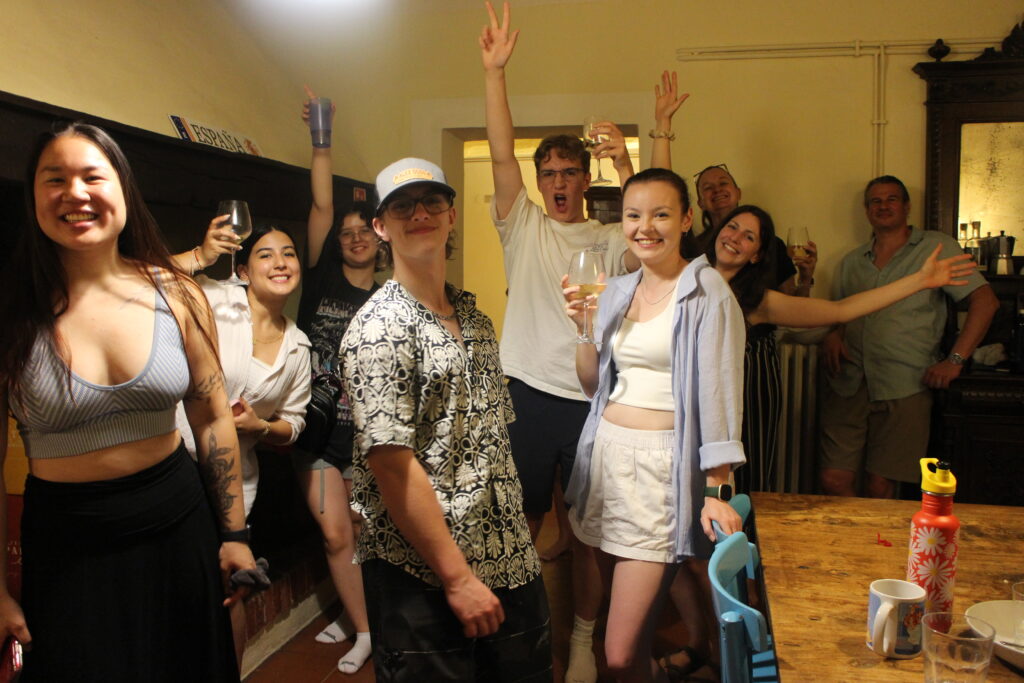
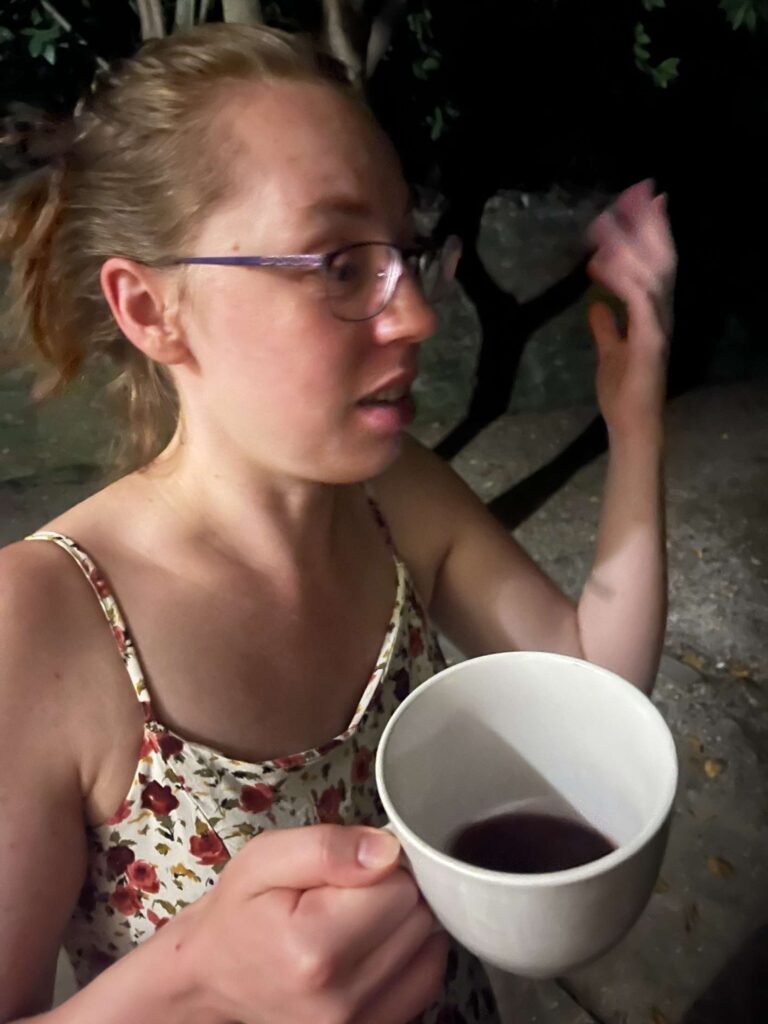
Kalina was drinking her wine out of a massive mug tonight which I thought was hilarious.